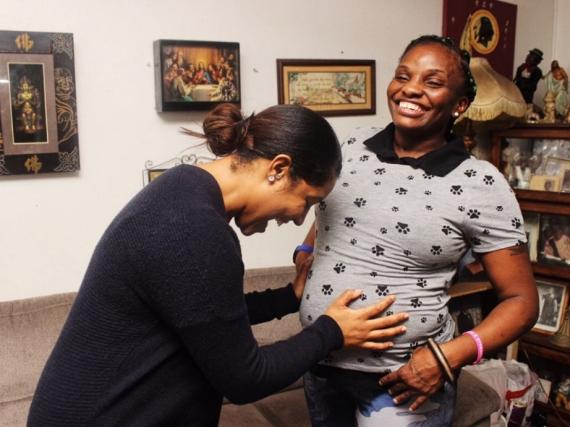DECLINE IN U.S. BIRTHS AMONG WOMEN WITH ADVANCED DEGREES
(Washington, D.C.) —U.S. births have declined with advanced maternal education, according to a new data brief from the Centers for Disease Control (CDC). This is the first report on the education of all mothers in the U.S. in more than 20 years. Specifically, the findings indicate:
- In 2017, 41.7 percent of mothers age 25 and over had completed a Bachelor’s or advanced degree.
- Approximately 68 percent of Non-Hispanic Asian mothers age 25 and over were the most likely of all race and Hispanic-origin groups to have a Bachelor’s or advanced degree.
- Mothers in the District of Columbia were more likely to earn a Bachelor’s or advanced degree, 58.5 percent compared with mothers in other U.S. jurisdictions.
- The mean number of births declined with advancing maternal education from 2.70 births for mothers with less than a 12th grade education, with no high school diploma, to just under 1.90 births for mothers with a Bachelor’s or advanced degree.
In response, Colleen Crittenden Murray, Senior Science Officer, Power to Decide, issued the following statement:
“The new birth publication released recently from the CDC reinforces an association we have known for a while with regard to the number of children a woman has over the course of her lifetime. Specifically, the report indicated that the average number of births are declining among those with advanced education (beyond high school). The finding also aligns with another trend, which is that women are waiting until they are older to have their first child.
“This brief supports previous data collected from Power to Decide indicating that when asked about the desired timing of pregnancy, 90 percent of women age 18-29 say they do not intend to get pregnant at this point in their lives. These findings are meaningful for what it represents for young women across the country, particularly as it relates to birth control. By delaying childbearing until later in their educational journey, more women have successfully realized their life goals with the help of access to and consistent use of contraception.
“In order for all women to continue to have control over their reproductive well-being, we must continue our efforts to ensure access to quality information about contraception and access to the full spectrum of reproductive health services. Such access will help ensure all women have the power to decide if, when and under what circumstances to get pregnant and have a child.”
Power to Decide is a private, non-partisan, non-profit organization that works to ensure all people—no matter who they are, where they live or what their economic status might be—have the power to decide if, when and under what circumstances to get pregnant and have a child. Please visit us at www.PowerToDecide.org or follow us on Facebook and Twitter.

